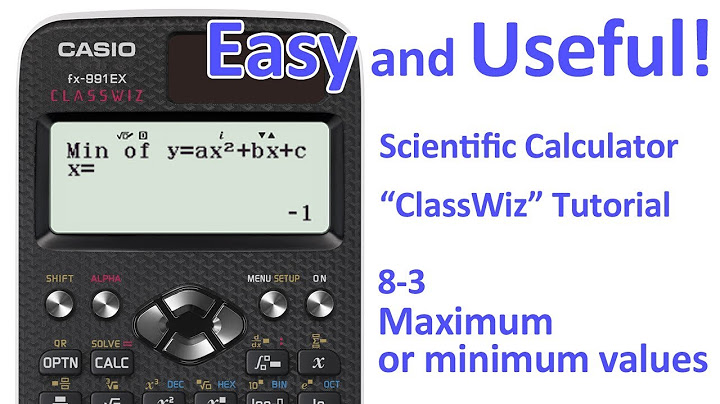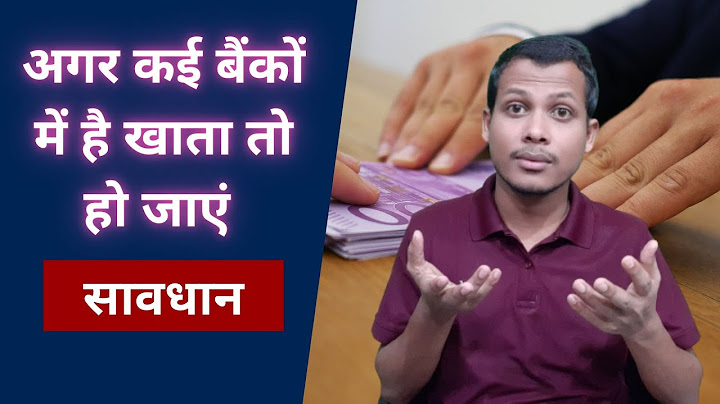Buying a home will probably be one of the largest purchases you ever make, so it's important to understand exactly what goes into it. Show
Unless you have enough money saved up to purchase a house completely upfront and in cash, you'll have to take out a home loan — also known as a mortgage — to borrow enough money to pay for it. If you're taking on a mortgage, you'll need to make what is known as a down payment, which is a lump sum of money that gets paid upfront when you're buying a home. While the down payment is typically a portion of the home's total value, the mortgage or home loan is meant to cover the remainder of the home's value. Below, Select takes a closer look at how much of a down payment you should be prepared to make, and what to do if you can't afford to put down too much. Subscribe to the Select Newsletter! Our best selections in your inbox. Shopping recommendations that help upgrade your life, delivered weekly. Sign-up here. How much of a down payment should you make?The amount of the down payment you end up making will depend largely on the type of home loan you choose. FHA loans, for example, have a minimum down payment requirement of 3.5% of the home's value. A conventional loan, on the other hand, typically requires a down payment of 5% to 20% of the home's value, while those who qualify for a VA loan can actually make a down payment of 0%. Jumbo loans, however, have much higher down payment minimums — usually 10% or 20% — since these types of loans are meant for people who need to borrow significantly larger amounts of money. Ally Bank and Rocket Mortgage are two lenders that offer jumbo loans; check out this article for additional options. Making a large down payment can actually pay off in the long-run. The larger your down payment is, the less money you'll have to borrow through a home loan, which, in turn, can mean your monthly payments are lower, the amount of total interest you have to pay will be smaller, and you'll have more space in your budget for savings or other expenses. Rocket Mortgage
Terms apply. What if you can't afford to make a large down payment?Making a lower down payment does present some advantages, allowing you to reserve more of your savings for closing costs, lender fees, renovations that may need to be done on your new home or other moving-related expenses. It's also important to keep in mind that the larger your down payment is, the more equity you'll have in your home right off the bat. Traditionally, homebuyers have been encouraged to put down at least 20% on their home purchase, although nowadays making a lower down payment is more common, and allows homeownership to be accessible to more people. If you do decide to make a down payment of less than 20%, just be aware that you'll have to pay extra each month for private mortgage insurance, or PMI, until you've built up 20% equity in the home. Select identified mortgage lenders that offer additional options for people who want to make a smaller down payment. Chase Bank offers the DreaMaker loan, which allows homebuyers to make a down payment as low as 3% of the home's value as long as they adhere to stricter income requirements. Another lender, Navy Federal Credit Union, is especially appealing to those who qualify for a VA home loan, which carries a down payment requirement of 0%. Chase Bank
Terms apply. Read moreEditorial Note: Opinions, analyses, reviews or recommendations expressed in this article are those of the Select editorial staff’s alone, and have not been reviewed, approved or otherwise endorsed by any third party. While many people still believe it's necessary to put down 20% when buying a home, that isn't always the case. In fact, lower down payment programs are making homeownership more affordable for new home buyers. In some cases, you might even be able to purchase a home with zero down. How much down payment you'll need for a house depends on the loan you get. While there are benefits to putting down the traditional 20% — or more — it may not be required. For many first-time homebuyers, this means the idea of buying their own house is within reach sooner than they think. What is a down payment?A down payment is the initial, upfront payment you make when purchasing a home. This money comes out of pocket from your personal savings or eligible gifts. Traditionally, a mortgage down payment is at least 5% of a home's sale price. Down payments are often, but not always, part of the normal homebuying process. If a buyer put 10-20% down, they may be more committed to the home and less likely to default. If there is more equity in the property the lender is more likely able to recover its loss in the event of foreclosure. Further, putting 20% down on your home when you purchase can help show the bank — and yourself — that you're financially ready to purchase a house. A down payment on a house also protects you as the buyer. If you want to sell your home and the market drops, you might owe more on your property than it's worth. If you made a larger down payment when you purchased your house you may break even, or possibly make money when you sell. Types of loansYou can choose from a wide variety of loans. However, the four common types of mortgage loan programs are: 1. Conventional Fixed-Rate MortgagesWith this type of mortgage, you keep the same interest rate for the life of the loan, which means the principal and interest portion of your monthly mortgage payment stays the same. These types of loans typically come in 10, 15, 20 or 30-year terms. If you put less than 20% down on a conventional loan, you may need to pay private mortgage insurance (PMI). The most common way to cover this cost is to pay for it in a monthly premium that's added to your mortgage payment. PMI usually equals 1% of your loan balance per year. Many lenders offer conventional loans with PMI for down payments as low as 5%, and some as low as 3%. 2. Conventional Adjustable-Rate Mortgage (ARM)Unlike a fixed-rate loan, an adjustable-rate mortgage has an interest rate that can go up or down based on market conditions. The down payment is typically between 3 and 20%, and will require PMI for buyers who put down less than 20%. With an ARM, the initial rate is often lower than a fixed-rate loan. However, the interest rate may go up over time. 3. Federal Housing Administration (FHA) LoanThis is a type of loan insured by the federal government. An FHA loan is ideal for first-time buyers with less-than-perfect credit scores and offers down payments as low as 3.5%. Unlike conventional mortgages, mortgage insurance includes both an upfront amount and a monthly premium. 4. VA LoansThis type of loan is only available for U.S. military veterans and active-duty servicemembers. VA loans are funded by a lender and guaranteed by the Department of Veterans Affairs. The primary benefit of pursuing this type of loan is it may not require a down payment. How credit score impacts your down paymentYour credit score impacts on your loan and interest rate options. Buyers with credit scores as low as 500 might still be able to get a loan for a home, but they'll likely face higher interest rates and have fewer options. The higher your credit score, the lower your interest rate. A strong credit score also means lenders are more likely to be lenient in areas where you may not be as strong, such as your down payment. Your credit score shows you have a proven history of making payments on time and that you’re less of a risk. In these instances, they might allow you to get a great interest rate while making a smaller down payment. Benefits of putting more than 20% downIf you're able to do so, you may want to consider putting down a payment that's larger than 20%. Here are some of the benefits:
Determining your down paymentHow much do you need for a down payment, then? Use an affordability calculator to figure out how much you should save before purchasing a home. You can estimate the price of a home by putting in your monthly income, expenses and mortgage interest rate. You can adjust the loan terms to see additional price, loan and down payment estimates. Here are some steps you can take before determining how much home you can afford and how much you can put down on a house: 1. Evaluate your budgetReview your current budget to determine how much you can afford, and how much you want to spend. Ask your lender about their requirements for how much of your pre-tax income you should spend on housing payments and other debts. 2. Assess your home needsAsk yourself what you really need from your home. For example, do you plan to start a family? Do you have teenagers who will soon be moving out? These are all important considerations. You need to anticipate not only the stage of life you're in right now, but also what stage you'll be entering while in your home. 3. Consider your optionsAfter evaluating your budget and what you need from your home, it's time to consider all your options. You might need to look for a loan option that allows a smaller down payment, or you might want to give yourself more time to save up for a larger down payment. It can be beneficial to work with someone who knows the answers to all these questions. A home lending advisor can help you understand the different types of mortgages available and go over down payment requirements for each type of loan to find the right one for your financial situation. What is the lowest possible down payment for a house?You may have heard that a down payment should be 20% of a home's purchase price, and while it does have advantages, it's not necessary. A Federal Housing Administration (FHA) Mortgage has a minimum down payment of only 3.5%. It's available to all qualified buyers, regardless of income level.
How much do most lenders require for down payment?Typically, mortgage lenders want you to put 20 percent down on a home purchase because it lowers their lending risk. It's also a “rule” that most programs charge mortgage insurance if you put less than 20 percent down (though some loans avoid this). But it's NOT a rule that you must put 20 percent down.
What is the minimum down payment for?The minimum down payment is the cash contribution that a borrower must provide when they purchase a home. Many mortgage loans will require such a minimum, and the actual amount required varies by the loan program, but the standard minimum down payment required for a conventional loan is 20% and 3.5% for an FHA loan.
|

Advertising
LATEST NEWS
Advertising
Populer
Advertising
About

Copyright © 2024 en.idkuu.com Inc.













